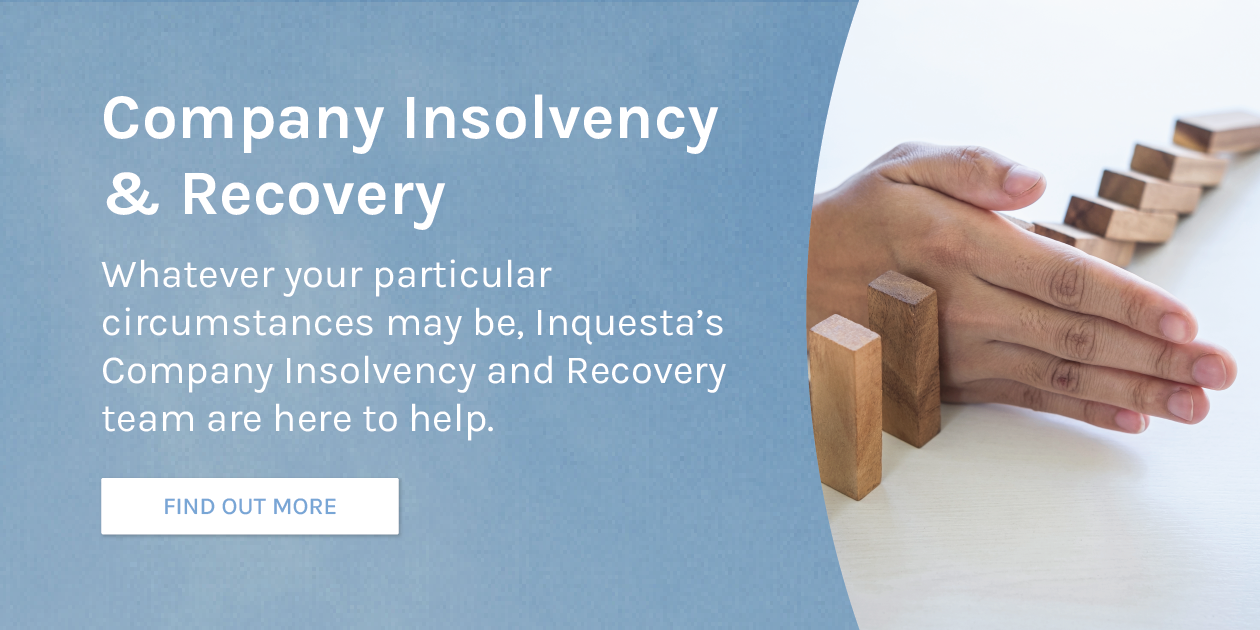Excitement About Insolvency Practitioner
Excitement About Insolvency Practitioner
Blog Article
Things about Insolvency Practitioner
Table of ContentsRumored Buzz on Insolvency PractitionerMore About Insolvency PractitionerThe Insolvency Practitioner StatementsLittle Known Facts About Insolvency Practitioner.Some Of Insolvency Practitioner
Whether you require to make use of a bankruptcy professional (IP) to liquidate your firm depends on various elements. While involving an insolvency expert for all forms of liquidation is not a legal need, doing so can typically enhance the procedure and make certain conformity with lawful demands. Liquidating a company is a vital choice that comes with significant consequences.
It is a procedure used when a firm does not have any kind of financial institutions, or every one of their financial institutions can be repaid completely with statutory rate of interest. Comprehending the different types of bankruptcy procedures can aid you identify the most effective program of action for your company's liquidation or other formal bankruptcy procedures itself.
This is necessary in order to abide by legal requirements - Insolvency Practitioner. This is because IPs have the required qualifications and experience to guarantee that the liquidation procedure is carried out based on all relevant regulations and guidelines. By engaging an accredited bankruptcy specialist, you can have assurance recognizing that your business's liquidation process will certainly be dealt with professionally and in conformity with the relevant lawful needs
An Unbiased View of Insolvency Practitioner
The insolvency expert is selected as a liquidator and is in charge of taking care of the firm and liquidator's debts impressive responsibilities and properties. This process includes liquidating the firm's possessions and distributing the earnings to financial institutions. Upon conclusion of the process, the firm is eliminated from the register at Companies Home.
Falling short to do so can lead to personal liability for the company or supervisor for the creditor's financial obligations. Voluntary liquidation, that includes Creditors' Volunteer Liquidation (CVL) and Participants' Voluntary Liquidation (MVL), is initiated by the business's supervisors and investors when they can no more pay their financial debts. In a CVL, the insolvency expert is marked as the liquidator, liable for managing firm financial debts and all business properties.

The 30-Second Trick For Insolvency Practitioner
By examining the competence and experience of prospective insolvency practitioners, you can ensure that you pick a professional that possesses the required credentials to handle your company's liquidation procedure successfully. While insolvency practitioner-led liquidation is often one of the most appropriate training course of activity for firms dealing with bankruptcy, there are alternate approaches to take into consideration, such as striking off and partial liquidation.
It's important to review all available choices prior to picking the next ideal service or program of activity for your company. Striking off firms' registers is an extra uncomplicated and cost-efficient means to shut dormant or little companies with no financial obligations or properties. To strike off a business, its name is gotten rid of from the Business Residence register by submitting kind DS01.
Before deciding for striking off, it's crucial to weigh the benefits and drawbacks of this technique and consider whether it's the ideal selection for your business. Partial liquidation is one more option to insolvency practitioner-led liquidation, where a business liquidates certain assets and obligations while remaining to operate with the continuing to be possessions and liabilities.
A Bankruptcy Specialist will certainly have the ability to suggest you of the very best training course of activity to take and make sure that everything runs efficiently. However, check out here it is not possible to sell off a company without a liquidator. Appointing an authorized bankruptcy practitioner is essential for the process of voluntary liquidation to start.
Insolvency Practitioner for Dummies
It is feasible to close and liquidate your business without making use of a liquidator, given your business is solvent and you satisfy the qualification demands to liquify or liquidate it. Nonetheless, if your firm is insolvent, you might be required to make use of a liquidator and start official insolvency treatments. Right here are some other useful articles relating to company liquidation in the UK:.
Being in a setting where you're incapable to pay your company's financial institutions is exceptionally difficult. In an effort to avoid increasing the degree of debt, lots of business attempt to work out straight with their financial institutions and accept an informal setup. If the debt is quite tiny and owed to one lender, and the financial institution is being cooperative, participating in an casual financial obligation arrangement is probably the very best remedy, instead of browsing the internet for 'an insolvency expert near me'.
On the other hand, if there are several financial institutions and the degree of financial obligation is large, lenders may not be so ready or participating. To avoid liquidation or insolvency, it is much better to work with a bankruptcy practitioner to formulate formal propositions and discuss with financial institutions on your behalf.
Getting My Insolvency Practitioner To Work
Whilst it is a method to manage financial obligation, there are significant dangers entailed with this type of debt plan - Insolvency Practitioner. If a lender is willing to participate in a casual arrangement (IA) whereby the borrower has actually consented to make routine, if lower, settlements to repay the financial obligation, it is very important to stick to the agreement

Therefore, the financial institution is within their rights to back out of the arrangement and request the courts for your business to be liquidated at any kind of time. An official plan that discover this has been proposed by a bankruptcy specialist on your part, and agreed by a creditor, gives a much safer alternative.
Report this page